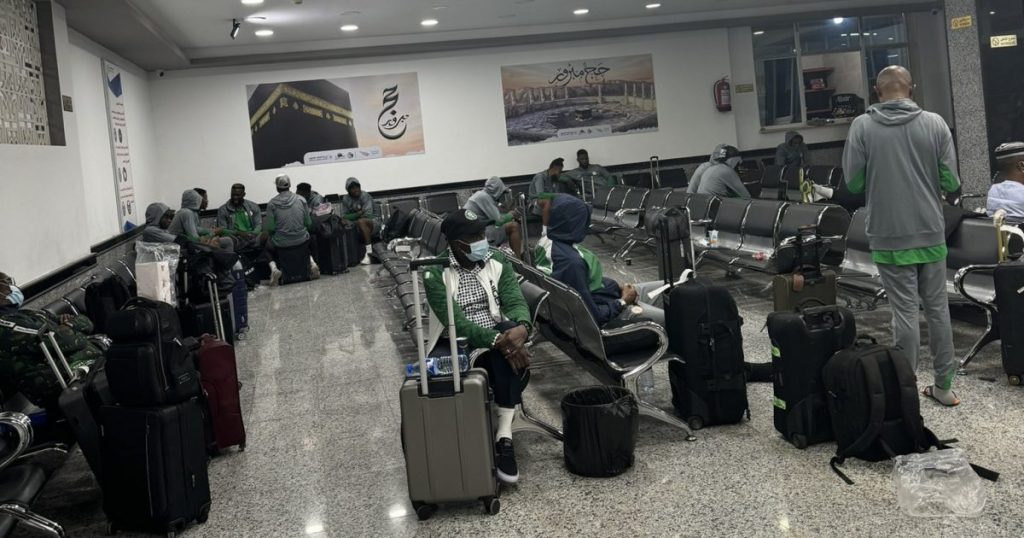Nigerian forward Victor Boniface has voiced his frustration regarding the Super Eagles’ tumultuous experience after being stranded for over 12 hours at Al Abraq International Airport in Libya. The team had traveled to Libya for an essential Africa Cup of Nations (AFCON) 2025 qualifier against the host nation. Upon their arrival on Sunday, they faced unforeseen delays that significantly disrupted their plans. In a candid post on X, Boniface highlighted the challenges faced by the team, stating, “Been at the airport for almost 13 hours, no food, no Wi-Fi, nowhere to sleep. Africa, we can do better.”
The Super Eagles’ difficulties began when their chartered ValueJet flight was unexpectedly rerouted from its original destination, Benghazi Airport, to the significantly smaller Al Abraq International Airport, typically utilized for Hajj operations. As noted in a statement from the Nigeria Football Federation (NFF), this diversion occurred just as the aircraft was completing its final approach to Benghazi, leaving players and officials without a plan for the next steps. The sudden change in plans not only led to confusion but also resulted in the team lacking basic amenities and services upon arrival.
Compounding their inconvenience, the Super Eagles were left without any expected reception or transportation from the host Libyan Football Federation, despite prior arrangements being made for their arrival. Plans had been set to transport the athletes and coaching staff to their hotel in Benghazi, which lies approximately three hours away from the airport. However, the diversion thwarted these logistical arrangements. The NFF’s statement further clarified the distressing situation, stating, “Fatigued players and officials have remained nonplussed as the host Libyan Football Federation failed to send any reception team or even vehicles.”
In the wake of the ordeal, players found themselves growing increasingly exasperated with the lack of assistance and amenities. After hours of waiting in an airport devoid of adequate provisions, including food and proper facilities to rest, the situation escalated to a critical point. The NFF highlighted that, despite their arrangements for separate vehicles to accommodate the transport of the team, the sudden rerouting of the flight rendered these plans ineffective. The distress of the players and coaching staff only heightened as time passed without any resolution.
Furthermore, the emotional and physical toll of the situation became so severe that the players collectively resolved to withdraw from participating in the scheduled match against Libya. Amid the growing frustration, the NFF began exploring options to fly the team back to Nigeria, illustrating how impactful the mismanagement of the situation was on sporting performance and morale. This proposed withdrawal from the match underscores the seriousness of how logistical inadequacies can endanger not just travel plans but also the competitive readiness of a national team.
Overall, Victor Boniface’s response and the statement from the NFF shed light on a broader issue of operational inefficiency that can plague international sports events in Africa. The experience of the Super Eagles at Al Abraq International Airport serves as a stark reminder of the challenges faced by athletes, highlighting the need for better management and support systems to ensure that national teams can focus on their performance rather than being hindered by logistical nightmares. This incident should catalyze discussions on improving protocols for reception and transportation for teams, particularly in regions where infrastructure may not always meet international standards.














